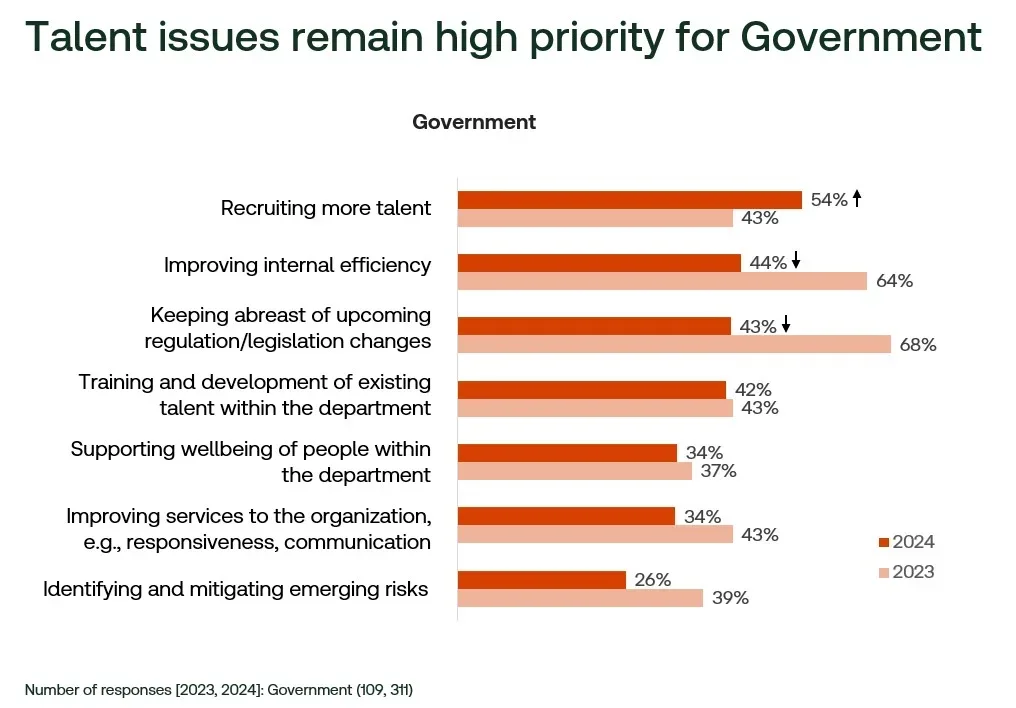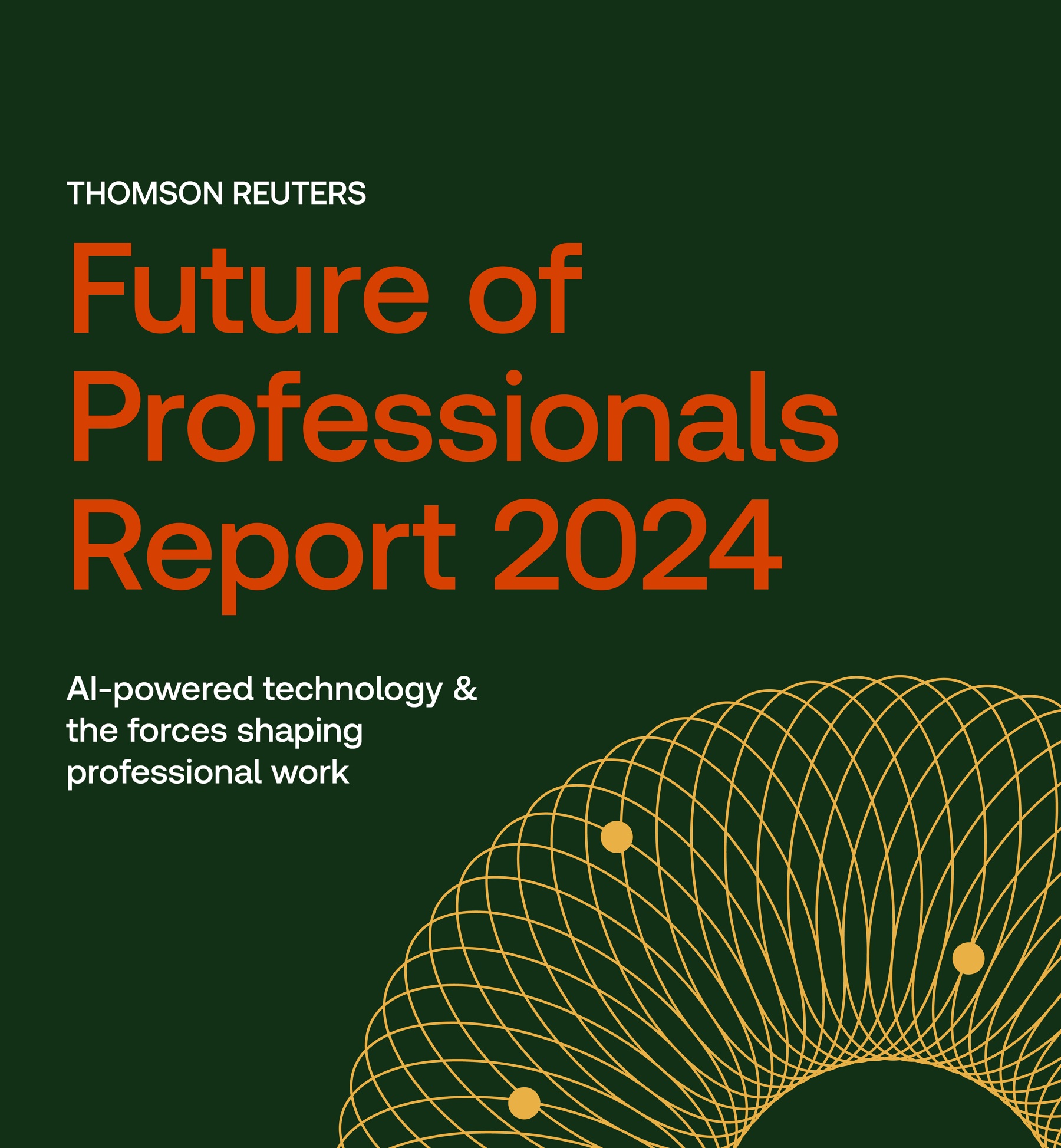Artificial intelligence (AI) has become the primary driving force for change within many professional workplaces today, changing perceptions of what AI can do for professional work.
Bringing together generative AI, trusted content and expert insights
CoCounsel
According to a recent survey which stated that more than three-quarters (77%) of survey respondents said they believe AI will have a high or transformational impact on their work over the next five years.
Thomson Reuters 2nd annual Future of Professionals Report shows that among the thousands of professionals surveyed, the rise of AI is clearly the dominant issue that they see propelling change in their respective professions. The report is based on a survey of more than 2,200 respondents across the legal, tax, trade, accounting, and risk, fraud & compliance fields, and within individual firms, corporate functions, and government agencies around the world. All with different and similar perspectives on AI.
Indeed, the report comes during a time in which professional work itself is undergoing massive change, as organizations look for ways to reduce costs and improve their efficiency, and professionals themselves seek a more rewarding work-life balance.
What government professionals want from AI usage
Those government professionals surveyed — among legal, law enforcement, and risk management roles within government agencies or government functions within corporations — shared that while, like their peers in other professions, they do have a perception of AI having a greater impact on their work over the next five years, their perspectives on AI and how it’s used within their profession are changing as well.
For example, while government professionals have the lowest average work hours per week among those segments surveyed, at 44 hours (compared to the overall average of 46), more than half (51%) said they did not have enough time to achieve everything they would like to do in their role. Interestingly, government professionals viewed AI usage less of an impact than their peers. They expect the least amount of freed-up time over the next year, at 2 hours per week, because of increased AI use at work. The overall average was twice that, with the average professional saying they expected to enjoy 4 hours of freed-up time per week over the next year because of increased AI use.
When asked how they would like to use any freed-up time, those respondents in government roles said they would want time for core tasks and long-term projects, as well as research and workload management — in a sense, replacing their freed-up time with more time to do the work they feel they don’t have the time to do now.
And there may be a strategic reason for this. AI is well outside the top five strategic priorities for those government respondents, who continue to focus more strongly on talent issues, according to the report. In fact, more than half of government respondents (54%) viewed talent issues as their highest priority over the next 18 months. And this priority was the only one among the top five that increased in importance in government professionals’ minds compared to last year.

The report attributed this phenomenon to what it called “departments’ sphere of control,” a situation in which decisions around technology are made centrally with little ability for individual government professionals or their organizations to experiment.
Shifting the cautious perception within government work
Because of this, however, government professionals’ perspectives around AI were significantly more cautious, specifically around AI development in their workplaces and predicted much slower adoption and utilization. Questioned more deeply, around 20% of government agency respondents said they believe that AI uptake on their team will be held back by internal issues such as their organizational appetite for change and risk, the complexity of ensuring data quality, and (not surprisingly) budgetary constraints.
Overall, this has resulted in the perception that AI will have a lower impact at an organizational level for government professionals at least in comparison to their corporate and firm counterparts, according to the report, although the technology can be a missing ingredient to improve government professional work.
Yet, that attitude is not irreversible. In fact, it might offer an opportunity for government organizations to help shift their professionals’ views of AI-driven efficiency and tech solutions through the deployment of already-available solutions that could help ease their work burdens significantly. For example, an AI-powered search solution, such as Thomson Reuters CLEAR, could show overwhelmed law enforcement teams ways to more quickly identify people of interest in investigations. Or AI-strengthen court case management tools — such as Thomson Reuters Case Center for Courts — could go a long way to improving the readiness level of many government law offices on the state and municipal levels.
While it may be natural for government professionals as a rule to be more cautious than their corporate or firm-based counterparts, the perspectives represented in the report should act as a clarion call for fuller investment in both the tech and talent that government organizations will need to continue to serve and protect the public in the best way forward.
 |
Thomson Reuters is not a consumer reporting agency and none of its services or the data contained therein constitute a ‘consumer report’ as such term is defined in the Federal Fair Credit Reporting Act (FCRA), 15 U.S.C. sec. 1681 et seq. The data provided to you may not be used as a factor in consumer debt collection decisioning, establishing a consumer’s eligibility for credit, insurance, employment, government benefits, or housing, or for any other purpose authorized under the FCRA. By accessing one of our services, you agree not to use the service or data for any purpose authorized under the FCRA or in relation to taking an adverse action relating to a consumer application.









